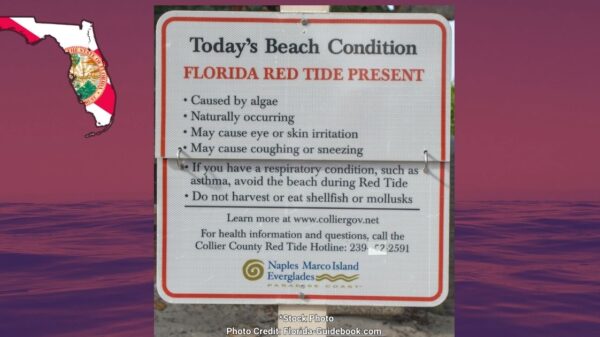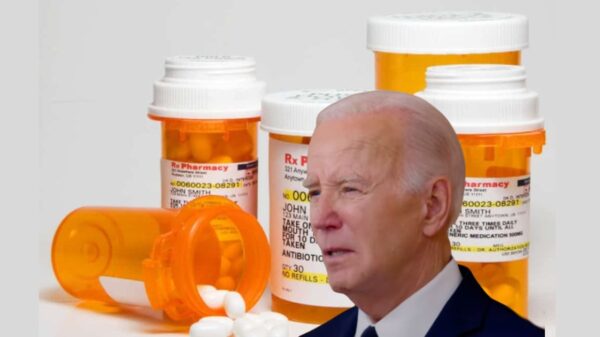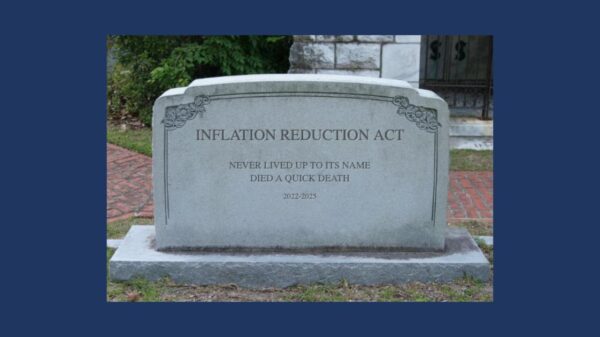This week, President Joe Biden signed the “Restoring Resilient Reefs Act,” which was included in the version of the National Defense Authorization Act (NDAA), into law.
U.S. Rep. Darren Soto, D-Fla., and U.S. Sen. Marco Rubio, R-Fla. have been working on the “Restoring Resilient Reefs Act,” a proposal to update and reauthorize the “Coral Reef Conservation Act,” which expired 15 years ago.
Back in the summer of 2019, Rubio, Soto and U.S. Sen. Rick Scott, R-Fla., joined with U.S. Sen. Brian Schatz, D-Hi., U.S. Sen. Mazi Hirono, D-Hi., and U.S. Rep. Jenniffer González-Colón, R-PR. to bring out the “Restoring Resilient Reefs Act” to reauthorize the old law. Other backers included then U.S. Rep. Charlie Crist, D-Fla., U.S. Rep. Brian Mast, R-Fla., U.S. Rep. Stephanie Murphy, D-Fla., and U.S. Rep. Dan Webster, R-Fla.
Rubio was the chief sponsor in the Senate while Soto introduced it in the House and the two men reintroduced the proposal at the start of 2021. While the U.S. Senate passed the bill at the end of 2020 the measure did not gain much traction in the U.S. House and failed to cross the finish line.
“The Coral Reef Conservation Act, which expired more than 15 years ago, was designed to promote the conservation of our nation’s reefs. In recent years, the decline in the nation’s coral reefs has only become more severe. The Restoring Resilient Reefs Act directs federal funding and technical assistance to states for the restoration and management of coral reef ecosystems, while incentivizing increased state and local investment in coral reef management capacity. The bill encourages innovative public-private Coral Reef Stewardship Partnerships among agencies, research centers, and community stakeholders; codifies and updates the U.S. Coral Reef Task Force; ensures that our national coral strategy is informed by a robust local stakeholder engagement process; and allows for emergency grants for coral disasters, among other measures,” Rubio’s office noted.
Rubio’s office also pointed out that the bill increased federal funds for reefs.
“The Restoring Resilient Reefs Act increases authorizations for the National Oceanic and Atmospheric Administration’s (NOAA) Coral Reef Program from $16 million to $45 million annually. This landmark legislation also authorizes a state block grant program for $12 million annually to support state efforts to manage and restore coral reefs, and $4.5 million annually for Pacific and Atlantic coral reef cooperative institutes. Together, these provisions represent a major step forward for coral reef stewardship,” Rubio’s office noted.
“I saw firsthand the devastated condition of our coral reefs when I toured the Florida Keys National Marine Sanctuary, and I promised a comprehensive response. This new law will ensure federal agencies are partnering effectively with state and local governments and non-governmental organizations to restore our dwindling coral reefs. The Florida communities that rely on the health of these critical ecosystems cannot be left behind. This is a pivotal moment in the battle to save our corals and protect our coastal communities,” said Rubio.
“The Restoring Resilient Reefs Act is a great win for Florida’s environment, and will build on our efforts to help restore and protect our coral reef ecosystems. I want to thank my colleagues, Senators Rubio, Hirono and Schatz, as well as Congressman Soto, for their hard work on this legislation and am proud that we finally got it across the finish line. I’ll never stop fighting to make sure future generations can enjoy all that Florida has to offer,” said Scott.
“Our Florida coral reefs are national treasures that contain part of the most diverse ecosystems on planet Earth. Time and time again, we’ve witnessed how the effects of climate change, overfishing, pollution, and development have threatened the vitality of coral reefs around our coasts. I’m thankful that our legislation with Senator Rubio was included in the FY23 NDAA and will help protect our environment – specifically our precious habitats for marine life. I look forward to seeing key federal programs reauthorized and funded to help stop the deterioration of our coral reefs. In Florida, our way of life certainly depends on it,” said Soto.






















